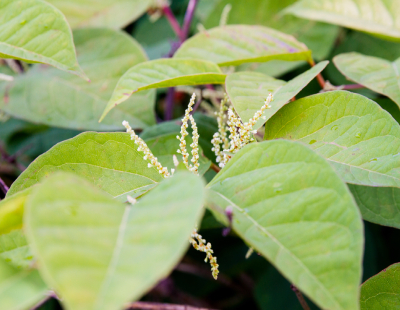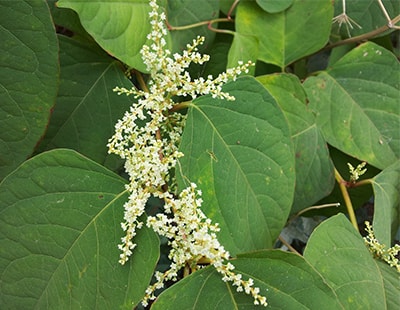
Buyers of new-build homes are being left exposed to the risk of Japanese knotweed due to difference in the conveyancing process for these purchases, an expert claims.
Unlike sales of secondhand homes, residential developers are not required to disclose whether a property is affected by Japanese knotweed.
Invasive plant specialist Environet UK warns that the lack of a TA6-style Property Information Form on new-build homes puts buyers at risk.
It warns that new-build homebuyers, who often don’t commission a survey since they believe themselves to be covered by the NHBC guarantee, may not find out about an infestation of the invasive plant on the site until it begins to regrow.
Unless their solicitor asks about Japanese knotweed as part of their additional enquiries, Environet warns, it is possible that the buyer will not know that Japanese knotweed was present on the site and will therefore be unable to check that a professional treatment plan was implemented and the appropriate guarantees secured.
Without any written assurances from the developer, buyers who later find their new home is affected by knotweed are left with only one option, to pursue them for breach of contract, which is notoriously more difficult to prove than a misrepresentation case.
Nic Seal, managing director of Environet, said: “Buyers of new-build homes are not currently given the same protection from the risks associated with Japanese knotweed as buyers of second-hand homes.
"A large proportion then increase this risk further by failing to commission a survey on their new home, as they think, quite incorrectly, that the NHBC warranty is sufficient to cover them for any defects.
“Put simply, the Japanese knotweed question must be asked. If the residential developer denies that knotweed was present but it is subsequently discovered, this evidence will give the buyer a strong case to sue the developer for misrepresentation, the cost of treatment and any proven diminution of the property’s value.”
Paolo Martini, director at Cobleys Solicitors and a legal expert in the field of Japanese knotweed law, said, “The excitement of new-build purchases, often agreed off plan, quickly turns to dismay within twelve months when knotweed emerges.
“Large developments, particularly those on brownfield land which is more likely to be contaminated, can lead to problems for developers and new home buyers alike where knotweed is ignored or remediation fails. Japanese knotweed must be treated by an expert, with full disclosure given to the buyer and quality guarantees provided within the contract of purchase.”





















%20A%20property%20tale%20for%20our%20times.png)








Join the conversation
Be the first to comment (please use the comment box below)
Please login to comment